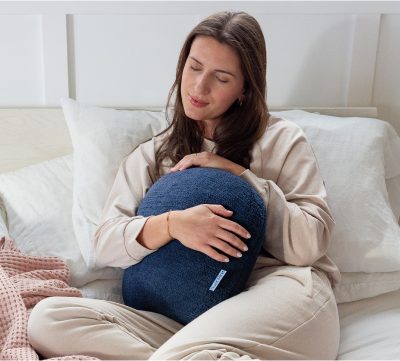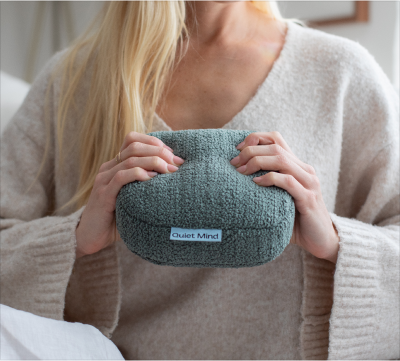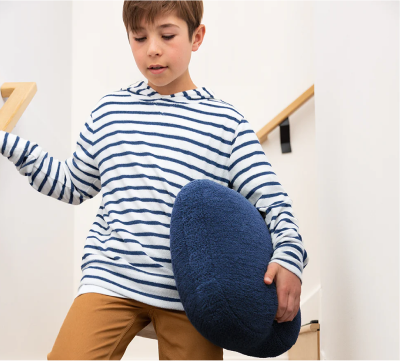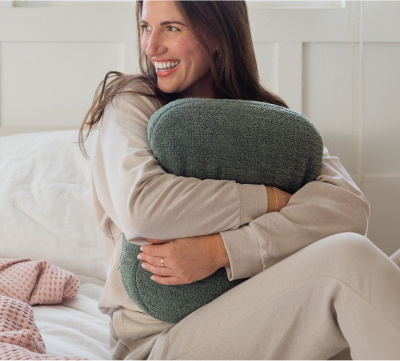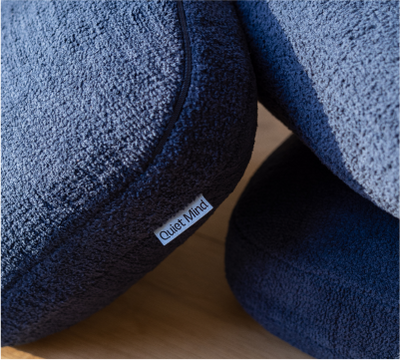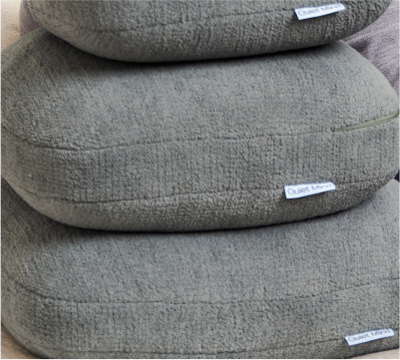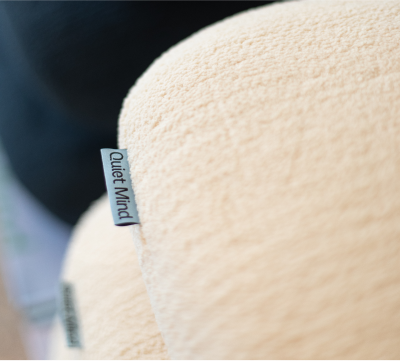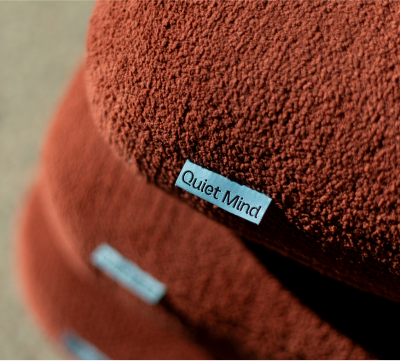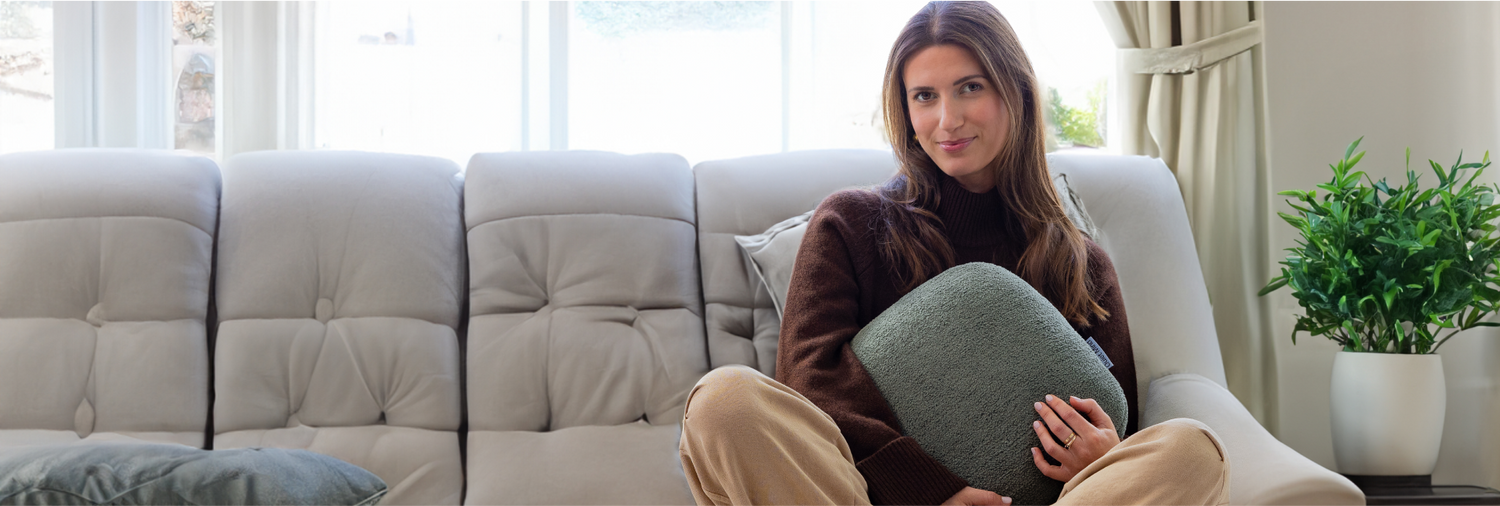Hair loss is very common, but when it appears suddenly, without a clear cause, emotional stress may be the underlying culprit. If you're noticing more hair than usual on your pillow, in your brush, or in the shower drain, you're not imagining it. Stress and anxiety can disrupt biological processes that support healthy hair, including the natural hair growth cycle.
Understanding how to regain hair loss from stress starts with identifying the signs and causes. This guide unpacks how stress may affect the hair, what different forms of stress-related hair loss look like, and how to begin restoring your scalp’s balance so that new hair can grow.
Can Stress Really Cause Hair Loss?
Yes, and the link runs deeper than most realize. Chronic or acute stress can cause hormonal shifts, immune responses, and nutritional deficiencies, all of which may affect the hair.
When your body enters a prolonged stress or illness state, it produces more cortisol, the primary stress hormone. This disrupts the hair cycle and sends follicles into a premature resting phase. As a result, hair loss can result just weeks or months after a major emotional or physical event.
The Link Between Chronic Stress and Hair Health
When the nervous system is stuck in fight-or-flight mode, the cascade of stress signals can compromise more than just your mood. It alters immune function, interferes with nutrient absorption, and suppresses cellular regeneration, all of which play a role in hair health.
Cortisol, the body's primary stress hormone, affects the activity of hair follicle stem cells, preventing them from re-entering the growth phase (anagen). Over time, this leads to increased hair loss, slower regrowth, and even follicle dormancy if stress becomes long-term.
In addition, stress and anxiety can contribute to:
- Tense or inflamed scalps, which may affect circulation to the follicles.
- Poor dietary choices that reduce intake of essential vitamins and minerals.
- Hormonal imbalances that alter the growth-shedding rhythm of normal hair.
The link between stress and hair is complex, but undeniable. Supporting the nervous system through relieving stress naturally, with tools like mindfulness, movement, and lifestyle changes is often a missing piece in conventional hair loss treatment approaches.
|
Hair Growth Phase |
Description |
Effect of Chronic Stress |
|
Anagen |
Active growth |
Shortened duration |
|
Catagen |
Transition |
Potential disruption |
|
Telogen |
Resting and shedding |
Increased hair fall |
Understanding Telogen Effluvium: Stress-Related Hair Shedding
Telogen Effluvium (TE) is the most common type of hair loss triggered by stress. It often begins two to three months after a major stressor, such as illness, surgery, job loss, trauma, or even illnesses caused by stress themselves and involves rapid shedding of hair across the entire scalp.
It differs from genetic or autoimmune forms of hair loss in several key ways:
- It's non-scarring, meaning follicles remain intact
- It typically affects the entire scalp evenly
- It is reversible, provided the underlying cause is addressed
While hair loss can be related to many factors, TE is distinct in that the follicles are not permanently damaged, only paused. As long as the immune system doesn’t attack the hair directly (as in alopecia areata), hair will usually begin to regrow over time.
What Stress-Induced Hair Loss Looks Like
Recognizing the signs of stress-related hair loss helps you respond with intention, not panic.
Common Signs of Hair Loss from Stress
Stress-related hair loss often follows a recognizable pattern that sets it apart from other types of shedding.
- Excess strands after washing your hair or combing
- Thinning hair at the temples or crown
- Even distribution of shedding rather than bald spots
- No inflammation, redness, or scaling on the scalp
- Temporary nature; often improving within months
If you’re experiencing these symptoms after a period of stress or illness, it may be a sign of stress-related hair loss. This is different from genetic conditions like female pattern hair loss or male-pattern baldness.
How It Differs from Other Types of Hair Loss
Stress-related hair loss appears suddenly and is typically diffuse, meaning it impacts your whole scalp rather than forming patches or receding hairlines. It doesn't follow a hereditary pattern and doesn’t involve scarring, which is common in more serious types of stress-related hair loss like cicatricial alopecia.
Here’s how it contrasts with other common causes:
- Genetic (pattern) baldness: Develops gradually, often starting with a receding hairline or thinning crown. Usually permanent.
- Autoimmune (alopecia areata): Involves circular bald patches; immune system attacks the hair.
- Nutritional deficiency: May mimic stress loss but often includes brittle nails and fatigue.
Stress-induced shedding usually:
- Follows a major life event or high levels of stress
- Peaks a few months after the stressor
- Resolves within 6–9 months with proper care
How to Tell If Your Hair Loss Is Temporary or Permanent
Distinguishing between temporary shedding and permanent thinning is crucial for choosing the right hair loss treatment. While stress may lead to hair loss, it does not always damage the follicle beyond repair.
Signs It's Likely Temporary (Stress-Related)
- Began after a known stressor (e.g. grief, illness, job change)
- Even shedding, not bald patches or scalp inflammation
- New hair regrowth visible along the hairline
- Overall well-being is improving
Red Flags That May Indicate Long-Term Damage
- Shedding continues beyond six months
- History of female pattern hair loss in your family
- Scalp is itchy, sore, or inflamed
- No visible signs of new hair growth even after recovery
In uncertain cases, a scalp biopsy or blood panel from a dermatologist can help rule out thyroid issues, anemia, or autoimmune activity that may lead to hair loss unrelated to stress.
Can You Prevent Stress-Related Hair Loss Before It Starts?
Stress isn’t always avoidable, especially during life-changing events or periods of intense emotion. However, there are ways to reduce your stress levels and support a biological environment that protects healthy hair follicle function.
When the body is chronically stressed, it shifts into survival mode, diverting nutrients and energy away from hair production. Learning to recognize early warning signs and adjusting your lifestyle habits can help slow hair loss before it accelerates.
Early Warning Signs of Stress-Triggered Hair Loss:
- You shed more than 100 strands of hair per day
- Your scalp feels sore, tense, or inflamed
- You notice dry, thinning hair that breaks easily
- You're in a period of high stress or illness
These signs show that you’re stressed and your hair cycle may be entering a premature shedding phase. Acting early with dietary, behavioral, and care-based changes can help hair maintain its rhythm, and in some cases, even stimulate hair regrowth before noticeable loss occurs.
Daily Habits That Protect Hair Health Under Stress
Lifestyle changes that support your nervous system and physical well-being can play a role in hair loss prevention and recovery.
- Balanced diet: Supports scalp health and replenishes vitamins and minerals.
- Gentle haircare: Protects weakened strands and helps reduce mechanical damage.
- Meditation & movement: Regulates the stress hormone cortisol, helping preserve the hair follicle.
- Restful sleep: Critical for hormonal balance and new hair regeneration.
Consistency in these areas doesn’t just help hair, it improves your full-body resilience, which in turn supports healthy hair at the follicular level.
How Long Does It Take to Regrow Hair After Stress?
Once the cause of your hair loss is addressed, whether emotional stress, burnout, or physical illness, hair will usually begin to regrow within a few months.
Recovery Timeline and Growth Phases
Hair regrowth takes time, and understanding the natural phases of recovery can help you stay patient and encouraged.
- First 1–3 months: The hair strands in the telogen phase shed; loss may temporarily increase.
- 3–6 months: Hair follicle stem cells re-engage and new hair growth begins.
- 6–12 months: Thickness and volume gradually return as the hair follicle reenters a stable cycle.
However, the rate of regrowth varies widely.
Factors That Affect Hair Regrowth Speed:
The speed of hair regrowth after stress-related loss varies from person to person, depending on several underlying factors.
- Genetics and age
- Nutritional status (particularly iron, vitamin D, biotin)
- Scalp health and circulation
- Ongoing levels of stress
- Quality of hair loss treatment
- Pre-existing conditions like female pattern hair loss
If progress plateaus beyond 6 months, it may be worth reassessing whether stress is the only factor causing your hair to thin.
How to Regain Hair Lost Due to Stress: Proven Methods
Recovery is holistic. It includes the scalp, the nervous system, and your day-to-day care.
Scalp Care and Gentle Hair Products
- Use sulfate-free, pH-balanced shampoos.
- Avoid heat styling and harsh treatments.
- Massage your scalp regularly to increase circulation.
Nutrition and Supplements for Hair Recovery
Your follicles require consistent access to protein, essential fats, and micronutrients to maintain normal function.
|
Nutrient |
Role |
Sources |
|
Protein |
Builds keratin, the key structural element |
Eggs, fish, legumes |
|
Biotin |
Supports growth and cellular turnover |
Whole grains, seeds, nuts |
|
Vitamin C |
Promotes collagen and iron absorption |
Berries, citrus, peppers |
|
Vitamin D |
Affects follicle cycling and immune response |
Sunlight, fortified dairy, fish |
|
Iron |
Prevents hair loss in women due to anemia |
Red meat, lentils, spinach |
Before starting supplements to treat hair loss, consult your healthcare provider, especially if you're already experiencing rapid hair loss or other symptoms.
Topical Treatments Like Minoxidil
Minoxidil is one of the most widely used products to treat hair loss. It enhances blood flow to the scalp and may activate dormant follicles.
- Available in 2% and 5% formulas.
- Requires daily use for 3–6 months to see results.
- Works best in combination with stress reduction and nutritional support.
Minoxidil may not be effective for everyone, but it's often a helpful adjunct in stress-related hair loss recovery.
Low-Level Laser Therapy (LLLT) for Hair Regrowth
LLLT uses gentle, targeted light waves to stimulate hair follicles at the cellular level.
- Increases ATP (cellular energy) within the hair follicle.
- May reduce inflammation caused by chronic stress.
- Available in FDA-cleared devices for at-home use.
Results vary by individual, but it has shown promise in cases where stress and hair loss co-exist and other treatments haven’t helped.
Managing Stress to Support Hair Regrowth
Hair responds directly to stress signals in your body. When your nervous system remains on high alert, hair follicles can pause their growth cycle. But with consistent stress management, you can help restore the biological balance needed for healthy regrowth.
Reducing Stress for Hair Health
Chronic stress doesn’t just affect your mind, it shows up in your body, and your scalp is no exception. These core practices help counteract that internal strain.
- Meditation: Practicing meditation, even for just 10 minutes a day, can lower circulating cortisol levels and calm your autonomic nervous system. Over time, this reduces the internal signals that disrupt hair growth and helps shift the body out of a chronic stress state.
- Exercise: Movement boosts circulation and improves delivery of oxygen and nutrients to the scalp. Aerobic activity also triggers the release of endorphins, which naturally balance mood and lower cortisol levels, creating a more supportive environment for hair recovery.
- Sleep: Deep, consistent sleep is when the body regenerates most actively. During this time, growth hormone is released, aiding tissue repair, including hair follicles. Poor sleep, on the other hand, keeps cortisol elevated, slowing recovery.
Creating a Self-Care Routine
Stress recovery is more sustainable when built into your day. Even small, regular rituals can reinforce a sense of safety and predictability that supports both your mind and your hair.
-
Breathwork before bed
Slow, intentional breathing activates the parasympathetic nervous system. Techniques like 4-7-8 breathing reduce heart rate and signal your brain that it’s safe to shift out of alert mode. -
Gentle morning walks
Exposure to natural morning light helps regulate your circadian rhythm, which stabilizes your sleep-wake cycle and reduces erratic cortisol release throughout the day. -
Journaling or unplugged evenings
Turning off screens and writing down thoughts can reduce cognitive overstimulation. This makes it easier to unwind naturally and prevents late-night cortisol spikes that interfere with both sleep and hormonal balance.
The Impact of Cortisol on Hair
Cortisol is the body’s primary stress hormone, and when levels remain elevated, it interferes with multiple biological processes that support hair growth. One key impact is its ability to push growing (anagen) hairs into the resting (telogen) phase prematurely, a hallmark of telogen effluvium.
In a 2016 review published in the Journal of Drugs in Dermatology, researchers noted that high cortisol levels degrade key components like hyaluronan and proteoglycans in the scalp. These substances are critical for maintaining follicle structure and anchoring the hair in its growth phase.
By lowering cortisol through targeted lifestyle changes, you can begin to reestablish the internal conditions necessary for healthy, sustained regrowth.
When to See a Dermatologist or Trichologist
If shedding continues despite lifestyle changes, consult a specialist.
Diagnosing the Root Cause of Hair Loss
A professional may:
- Review medical history and nutrition.
- Conduct scalp exams or blood tests.
- Evaluate for hormonal imbalances or autoimmune triggers.
Treatment Options for Persistent Hair Thinning
Depending on the diagnosis, treatment might include:
- Minoxidil or other topicals.
- Prescription medications or hormonal support.
- Light therapy (LLLT) or PRP.
- Stress management plans and dietary guidance designed to help you stop feeling stressful and support long-term hair recovery
Final Thoughts on Reversing Stress-Related Hair Loss
Hair loss is a common symptom of emotional stress and physiological imbalance, but it is also highly responsive to the right kind of care.
Hair loss can be related to stress, diet, sleep, or deeper immune or endocrine issues. The key is to understand what your body is communicating and respond with holistic, long-term support.
With consistency, your hair will usually return. But perhaps more importantly, you’ll recover your energy, resilience, and peace of mind along the way.
About Quiet Mind
At Quiet Mind, we understand that stress doesn’t just affect your mood: it can affect your body in visible ways, including hair loss caused by stress.
When the nervous system stays in a prolonged fight-or-flight state, it impacts hormonal balance, nutrient absorption, and even the health of your hair follicle.
That’s why we created the Quiet Mind Weighted Pillow, a science-backed tool that helps calm your body at its core. Designed for deep pressure stimulation (DPS), the pillow activates your parasympathetic nervous system, reducing cortisol (the primary stress hormone) and creating the internal conditions needed for recovery, including healthy hair growth.
Frequently Asked Questions
What is stress-related hair loss?
Telogen Effluvium, a form of temporary hair loss triggered by stress that shifts hair into a shedding phase.
How does stress cause hair loss?
Chronic stress raises cortisol, which disrupts the hair growth cycle and leads to increased shedding.
Is stress-related hair loss permanent?
Usually not. Once stress is managed, hair typically begins to regrow within several months.
How long does it take to regrow hair after stress-related hair loss?
Regrowth can begin within 3–6 months, but full recovery may take up to a year depending on severity and care.
What are some effective ways to regrow hair lost due to stress?
To regrow hair lost due to stress, balance your nutrition, add gentle scalp care, reduce your stress levels, and try treatments like minoxidil or LLLT.
How can I promote hair growth and reduce stress?
Focus on whole-body care: sleep, nutrition, movement, mindfulness, and gentle hair practices. A balanced combination of these create a nourished environment for hair growth and stress reduction.
